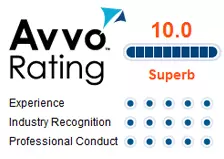Technology is causing a big problem with the way juries deliberate. Now that the internet has become ubiquitous, jurors have access to the web both while the case is being tried, and also, during deliberations. Because of this, jurors sometimes use the internet to do research about the issues being tried.
This is problematic because a jury’s verdict must be determined only from what they learn in the courtroom. In other words, their verdict must be based only from the evidence that is admitted. The judge will instruct them to base their verdict “only on the evidence I let in and nothing else.”
This is an important issue because in jury trials judges are supposed to act as gate-keepers to make sure that all of the evidence that gets to the jury is reliable. One way reliability is determined is through the rules of evidence, which require that before evidence can reach the jury an appropriate foundation must be established. It is for the judge to determine if such a foundation has been laid.
For example, in a drunk driving case the breath or blood test evidence cannot be admitted, meaning shown to the jury, until the prosecutor “lays a foundation.” A defense attorney, also using admitted evidence, may then show that the breath or blood test results are flawed in some way. A juror, wanting to know “the truth” about this evidence may seek to investigate breath or blood testing by researching it on the internet. If this happens, and the judge finds out, the case will be dismissed, and the jurors that do this could punished.
And yes, this really does happen. In 2008, Matt Roloff, star of the cable reality TV show “Little People, Big World” stood trial on DWI charges.
During jury deliberations, It came to the Court’s attention that certain jurors had be doing their own “research” on the internet, despite the court’s prior admonitions and specific order not to do this. Here are interviews with Roloff’s defense attorney and the prosecutor:
After this all came to light about the juror’s use of the internet to research Roloff’s drunk driving case, the judge gave Roloff (and his attorneys) the choice of asking the judge to declare a mistrial or converting his trial into a bench trial leaving the verdict up to the Court. He chose the latter. From the Reality TV World web site.
“While [Judge] Letourneau could have found the jurors in contempt of court and fined or jailed them, according to The Oregonian, he instead decided to make an example of them to let the community know how crucial it is “to follow the rule of law.”
In addition, Letourneau added the Oregon Supreme Court has found one of the field sobriety tests that was administered in Roloff’s called the Horizontal Gaze Nystagmus test to be only 77% accurate. This helped lead to the acquittal. “That is not beyond a reasonable doubt,” said Letourneau, according to The Oregonian.”
In another case, this time civil not criminal, it was determined, post-verdict, that the jurors had used Twitter during the case. The jury awarded a verdict of 12-Million, and the defendant is now appealing. If the defendant can show that Twitter was used, a mistrial will almost certainly be granted, and the 12 Million Dollar verdict will be eliminated.
The only way to prevent this from happening, at least during court hours, is for the judge to order the collection of juror’s phones and other portable devices. During non-court hours, the only way to nearly eliminate web surfing while the case is being tried is to sequester the jury. Today this almost never occurs. In the meanwhile attorney should be ever vigilant to make sure that jurors are not being exposed to information that is not otherwise part of the trial.









